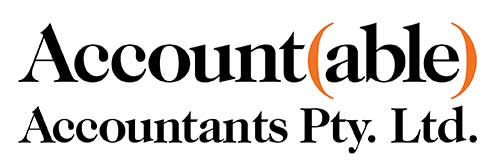Cost Saving Tips

A lot of households are really under the pump at the moment with the extreme cost-of-living pressures. Surveys, are finding that two in five people are experiencing mortgage and rent stress, as well as financial stress and are really struggling with the general cost of living.
People are just not in the same financial position as they were after having gone through 15 interest rate hikes since May 2022, together with the rising cost of groceries, energy bills, and fuel increases it is no wonder.
Over the next few months many will struggle to afford some household basics and even pay an essential bill. And as households look to stretch their budgets further, this affects their ability to create decent savings buffer to protect themselves into the future.
So, we have put together some cost saving tips as well as a Budget Planner that you could use at home and see where your money actually goes and where you can save some.
Good luck and we hope you will find this helpful!
BUDGET PLANNER:
DO YOU KNOW WHERE YOUR MONEY GOES?
Pat Hoey put together a budget planner from Money Smart that you can use at home. He suggests having three bank accounts and have your wages payment distributed across the three of them each week or pay period.
This will allow you to put aside money for: everyday needs (with bank card); bills & loans (no card); and savings/emergency/holidays/health (no card).
Some couples like to have their own personal bank account each, so expenses like cosmetics, hair, clothing, fitness, alcohol, coffee, lunches and going out go into each of the person’s personal spending account.
Give it a try you may be surprised where your money actually goes, and how much you can save by setting goals.
Click on the link below to get started….
https://weareaccountable.com.au/app/uploads/Expenses-budget-planner-split-into-3-bank-accounts.xls
COST SAVING TIPS TO SAVE MONEY
FOOD
- When buying groceries, look for the 40% – 50% off specials on essential items like cereals, dinner ingredients, cleaning items, etc and buy multiple items when on special.
- Go to a local farmers market to get cheaper fruit and vegetables.
- Buy the fruit and vegetables when they are in season, so prices are lower (and when out of season, if you need to have them, consider frozen or canned options)
- If you can grow it yourself – herb or vegie garden to cut this cost at the shops.
- Buy cheaper generic brands – i.e. black & gold.
- Don’t go shopping while hungry to avoid impulse buying
- Set meal plan/menu for the week then write your shopping list per weekly plan to avoid wastage and extra trips to the supermarket.
- Reconsider how often you need to buy a coffee or your lunch each week (maybe have days of the week where you take things from home)
HOUSEHOLD BILLS
- Spend a lunchtime reviewing insurance costs to see if can get a cheaper deal (insurance for home, car, life, income protection)
- Spend a lunchtime seeing if you can get a cheaper rate for electricity and gas.
- Review your phone and internet plans, to see if you can get a cheaper deal.
- Review your streaming subscriptions to see what you actually use (Netflix, Disney+, Stan, Kayo, Foxtel) – consider have 6-month periods swapping from one to another.
- Review what other direct debits come from your bank, to see what can be stopped or reduced.
- Call the bank to ask for a better interest rate (or speak to one of our mortgage brokers).
- Review your private health insurance costs, and what extras you actually need, and maybe change provider.
- Use apps that compare fuel prices or lock fuel prices (i.e. My 7 Eleven App)
GENERAL
- Turn off appliances when not in use i.e. computer, game appliances, phones etc
- Run you washing machine and dishwasher with a full load
- Great creative with gifts – baking, prepare dinner, go on an outing
- Shop at the op shop
- Review your gym memberships
- Low spend week/month – focus on cutting down on non-necessity items i.e. alcohol, expensive meat, beuaty products etc
- Don’t be afraid to haggle – Big department stores will match competitors prices and have discretion to reduce the price even further.
- Great creative with gifts – baking, prepare dinner, go on an outing
- Sell unwanted or unused items that are lying around the house on marketplace or gumtree.
